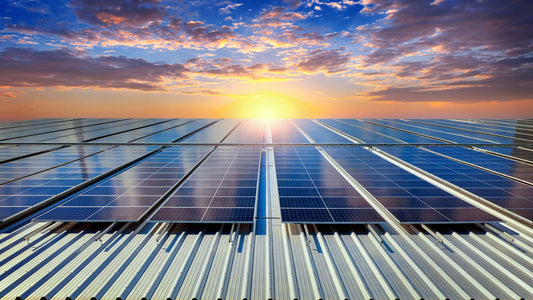
The Basics of Solar Energy: Production and Benefits Explained
What is Solar Energy?
Have you ever stopped to really think about the sun's power? One of the most plentiful and sustainable energy sources at hand is solar energy, taken from the rays of the sun. Solar energy is basically the radiant light and heat emitted by the sun that may be used and transformed into essentially heat and electricity forms. Since it presents a better substitute for conventional fossil fuels, therefore lowering our carbon footprint and supporting environmental sustainability, this renewable energy source has been rather popular recently.
The Production of Solar Energy
The journey of solar energy from sunlight to usable electricity involves several key processes, primarily centered around two main technologies: photovoltaic (PV) systems and solar thermal systems. Let’s explore how each of these systems works to produce energy.
1. Photovoltaic (PV) Systems
Photovoltaic systems are the most common method for converting sunlight into electricity. Here’s a closer look at how they function:
Solar Panels: Any PV system is fundamentally composed of solar panels, which comprise many photovoltaic cells. Usually composed of silicon, a semiconductor, these cells Sunlight strikes the panels, energizing electrons in the silicon to generate an electric current.
The Photovoltaic Effect: Solar cells are able to transform light into energy using this phenomena sometimes referred to as the photovoltaic effect. Sunlight's photons knock electrons free when they strike the silicon cells therefore enabling free flow and direct current (DC) generation.
Inverters: Most houses and companies run alternating current (AC) electricity, hence the direct current produced by the solar panels has to be turned around. This is achieved by means of an inverter, which converts DC into AC, hence fit for daily use.
Energy Storage and Distribution: Once converted, the electricity can be used immediately to power appliances or can be stored in batteries for later use. Additionally, excess electricity can be sent back to the grid, allowing homeowners to benefit from net metering programs, where they receive credits for the energy they contribute.
2. Solar Thermal Systems
While photovoltaic systems focus on generating electricity, solar thermal systems harness solar energy for heating purposes. Here’s how they work:
Collection of Sunlight: Solar thermal systems use solar collectors, typically mounted on rooftops, to absorb sunlight. These collectors often contain a liquid, such as water or antifreeze, which absorbs heat from the sun.
The heated liquid is then circulated through pipes to a storage tank or directly to where it is needed. In residential applications, this heated water can be used for domestic hot water supply or for space heating through radiant floor systems.
Efficiency and Applications: Solar thermal technology is particularly efficient for heating applications and is commonly used in swimming pool heating, industrial processes, and even in large-scale power plants where multiple collectors generate steam to drive turbines.
The Advantages of Solar Energy
Solar energy marks a fundamental change towards more sustainable energy sources, not only a trend. Following are some noteworthy benefits:
1. Renewable and Sustainable: Solar energy is never run-out. The sun's energy is ours to use without running out as long as it shines.
2. Reduces Greenhouse Gas Emissions: Changing to solar power will help us greatly rely less on fossil fuels, lowering greenhouse gas emissions and addressing climate change.
3. Energy Independence: Solar energy lessens reliance on imported fuels, therefore strengthening national energy security and stability
4. Cost Savings: Although solar panel installation can have substantial initial expenses, many homeowners find over time notable reductions on their electricity bills. Different government incentives and finance choices also help to make it more easily available.
5. Low Maintenance Requirements: Generally speaking, solar panels are low upkeep. For decades they can offer consistent energy with sporadic cleaning and inspections.
SUPPORT FOR SUSTAINABILITY
Ready to embrace sustainability and switch to solar? ForthLighting offers a variety of solar lights that will elevate the ambiance of your home or garden while inspiring you to explore more solar solutions.